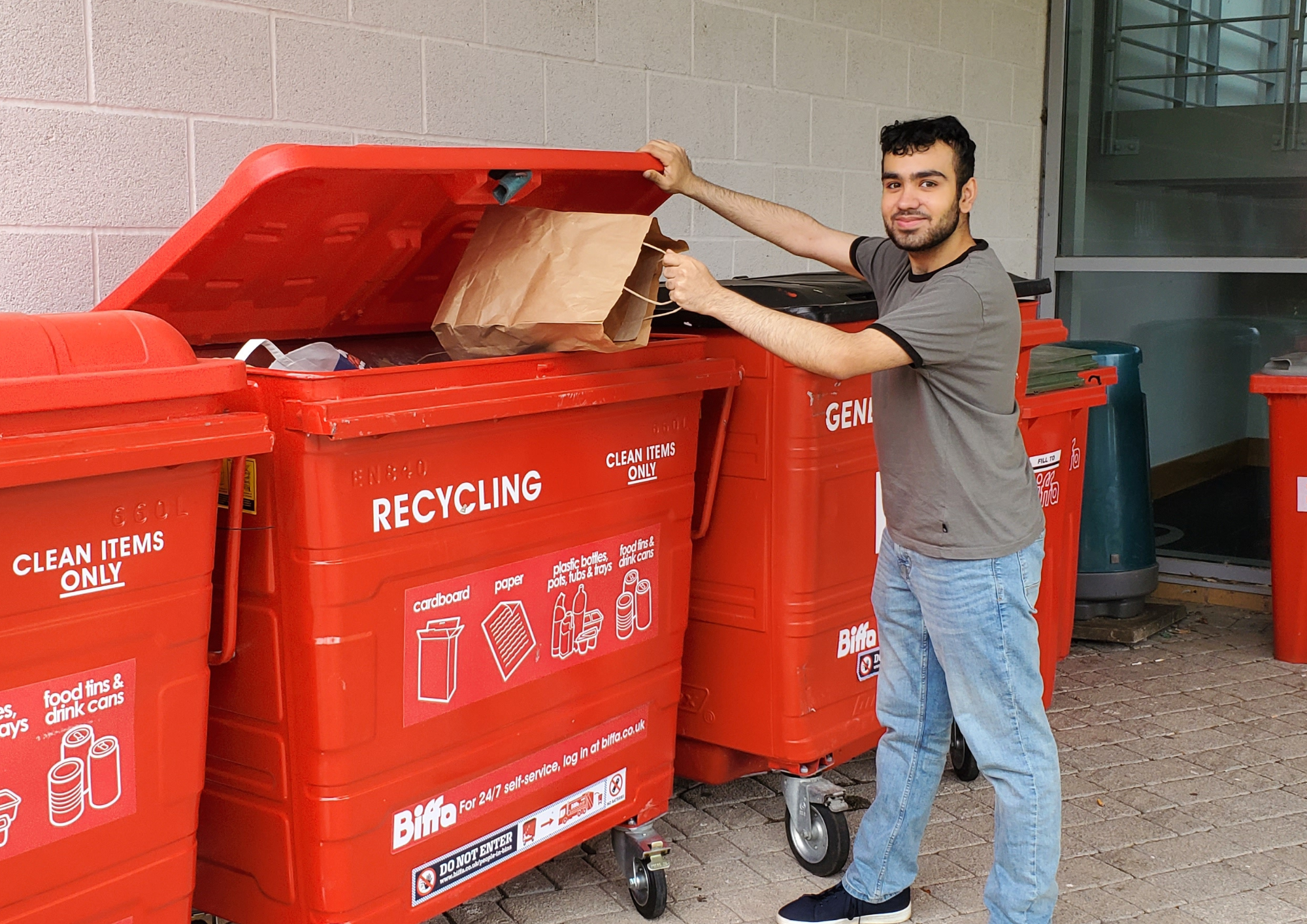Recycling on Campus
Recycling Guide
Not sure which things can be recycled into which bins? We have all the info you need to know here.
Recycling waste correctly plays an important role in protecting the environment. It reduces litter, conserves natural resources, and helps lower water use, air pollution, and water pollution. Recycling also saves energy and decreases greenhouse gas emissions, supporting efforts to address climate change.
Aerosols
- Recycling Points: Green lidded recycling bins
- Waste Corrals: Red Dry Mixed Recycling (DMR)
Aluminium Cans and Foil
- Recycling Points: Green lidded recycling bins
- Waste Corrals: Red Dry Mixed Recycling (DMR)
Our Projects and Campaigns
The university actively collaborates with staff and students to manage waste by seeking ways to reduce it, maximise reuse, boost recycling, and
divert items from general waste at every opportunity.
Be a Recycling Hero and learn how to minimise your waste and properly dispose items. There are separate dry mixed recycling (plastics, cans, etc.), glass, cardboard and paper, and food recycling streams available.

Good to Know
If you need help with the removal of bulky items or confidential waste, submit a request via the Estates ServiceDeskLink opens in a new window.
If you have any questions, please don't hesitate to contact wasteandrecycling@warwick.ac.uk or sustainability@warwick.ac.uk.
Map of Recycling and Donation Points
We have many Donation and Recycling points across campus available all year round.
Waste Management Policy
We're committed to making the most of our resources and ensuring that, through the Waste Hierarchy and Circular Economy, we reduce the impacts of our waste on the environment. View our Waste Management Policy








